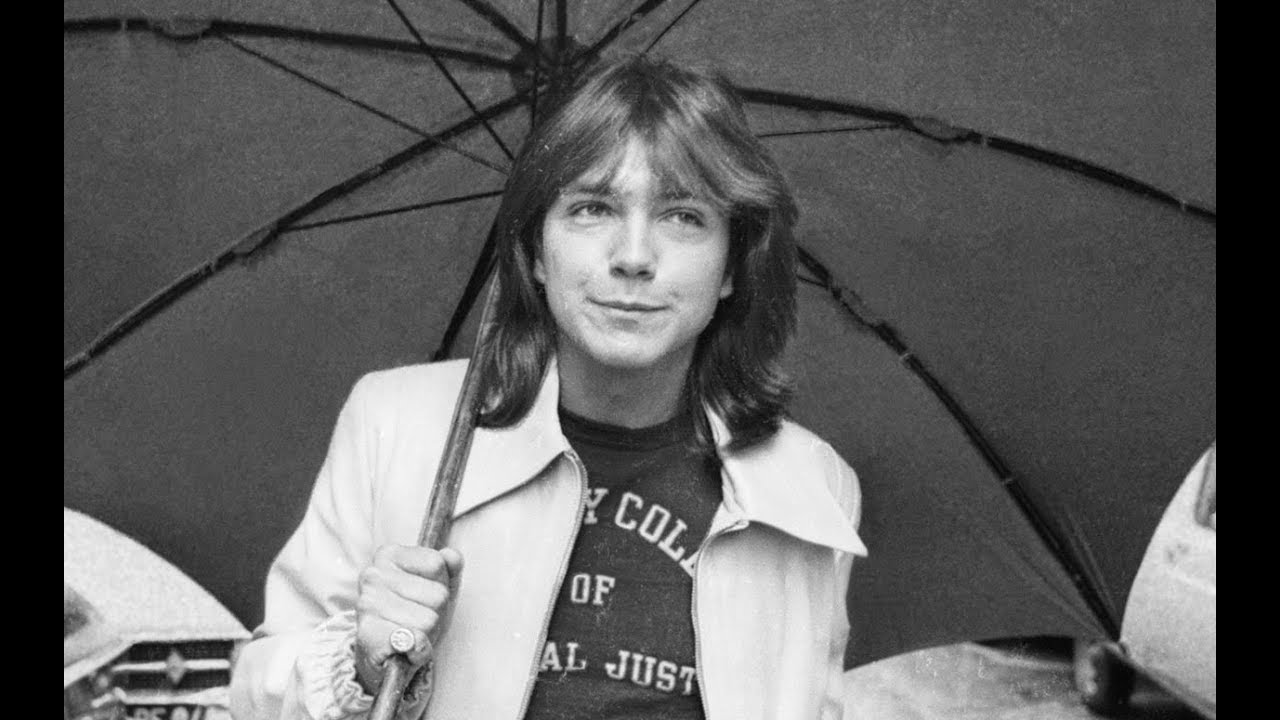
“Ain’t No Sunshine” in David Cassidy’s voice feels like dusk settling over a familiar room—an old ache revisited, not for drama, but for truth.
There are songs that don’t need decoration. They arrive already complete—three minutes of plainspoken sorrow, the kind that can sit beside you without trying to fix anything. “Ain’t No Sunshine” is one of those rare pieces: written by Bill Withers, first released in 1971, and built on a simple emotional fact—when the person you love is gone, the world’s temperature changes. And when David Cassidy chose to record it decades later, he wasn’t chasing a trend or trying to “update” a classic. He was doing something far more intimate: stepping into a song that already knows the shape of loneliness, and letting his own life experience quietly fill the spaces between the lines.
Cassidy’s recording appears on Then and Now, a compilation that paired new recordings with the sense of looking back—gently, honestly—at the path behind him. In the UK, that album made a striking entrance: it debuted at No. 7 on the Official Albums Chart dated 7 October 2001, then climbed to a peak of No. 5 the following week. That chart moment matters because it frames the mood of Cassidy’s “Ain’t No Sunshine” perfectly: not a sudden sensational comeback, but a warm, steady return—people leaning in again, curious to hear what his voice had become.
And by 2001, his voice had indeed become something different. The bright, youthful sheen that once carried pop’s easy optimism had deepened into a more reflective tone. On “Ain’t No Sunshine,” he doesn’t sound like he’s performing heartbreak; he sounds like he recognizes it. The song’s famous repeated line—those “I know, I know…” moments—can feel like a mind pacing the same small circle at night, replaying what it can’t change. In Cassidy’s reading, that repetition becomes less theatrical and more human, like someone trying to talk themselves into acceptance and failing—softly.
There’s a quiet backstory here, too, in the way Then and Now was positioned around that time. A Billboard item from July 27, 2001 mentions Cassidy’s return to touring in the United States after a long break, noting a set that included “Ain’t No Sunshine.” That detail casts a gentle light on the recording: this wasn’t only a studio choice, it was a stage choice—music he wanted to carry with him in front of an audience again, as if saying: Here is a song that still fits the way my heart sounds now.
The production context reinforces that sense of late-career clarity. Then and Now is widely listed as a 2001 UK release, with modern production credits that underline it as a fresh project, not merely an archival package. Yet “Ain’t No Sunshine” doesn’t feel “modernized.” It feels carefully contained—built to protect the song’s core: absence, cold air, a room that doesn’t feel right once someone’s gone.
What, then, is the meaning of David Cassidy’s “Ain’t No Sunshine”—specifically, his? It’s the sound of a man singing a universal lyric with personal gravity. The song doesn’t ask you to imagine heartbreak; it assumes you already know it. Cassidy’s performance leans into that assumption. He doesn’t over-explain. He doesn’t reach for vocal fireworks. He lets the sadness stay small enough to be believable—small enough to be yours.
And perhaps that is why it lingers. Some recordings feel like photographs; this one feels like a place you’ve been before. A quiet kitchen after the door has closed. A window at evening. A song that makes no argument except the simplest one: love leaves weather behind it. In “Ain’t No Sunshine,” David Cassidy doesn’t try to outshine the classic—he simply steps into its shadow, and somehow makes that shadow feel tender rather than frightening.